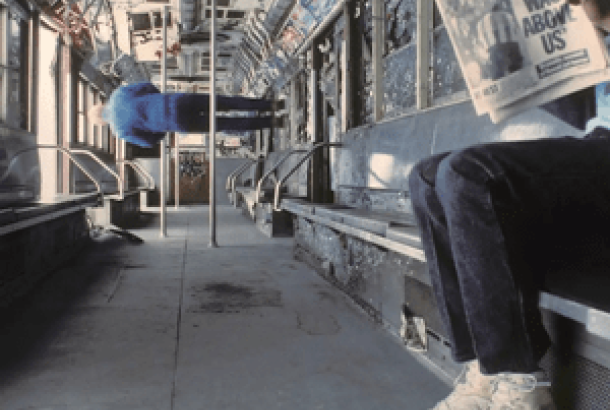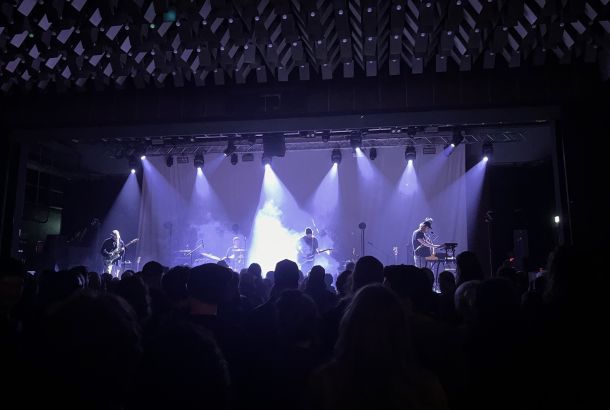Squid: “We’re not really too worried about everything making perfect sense”
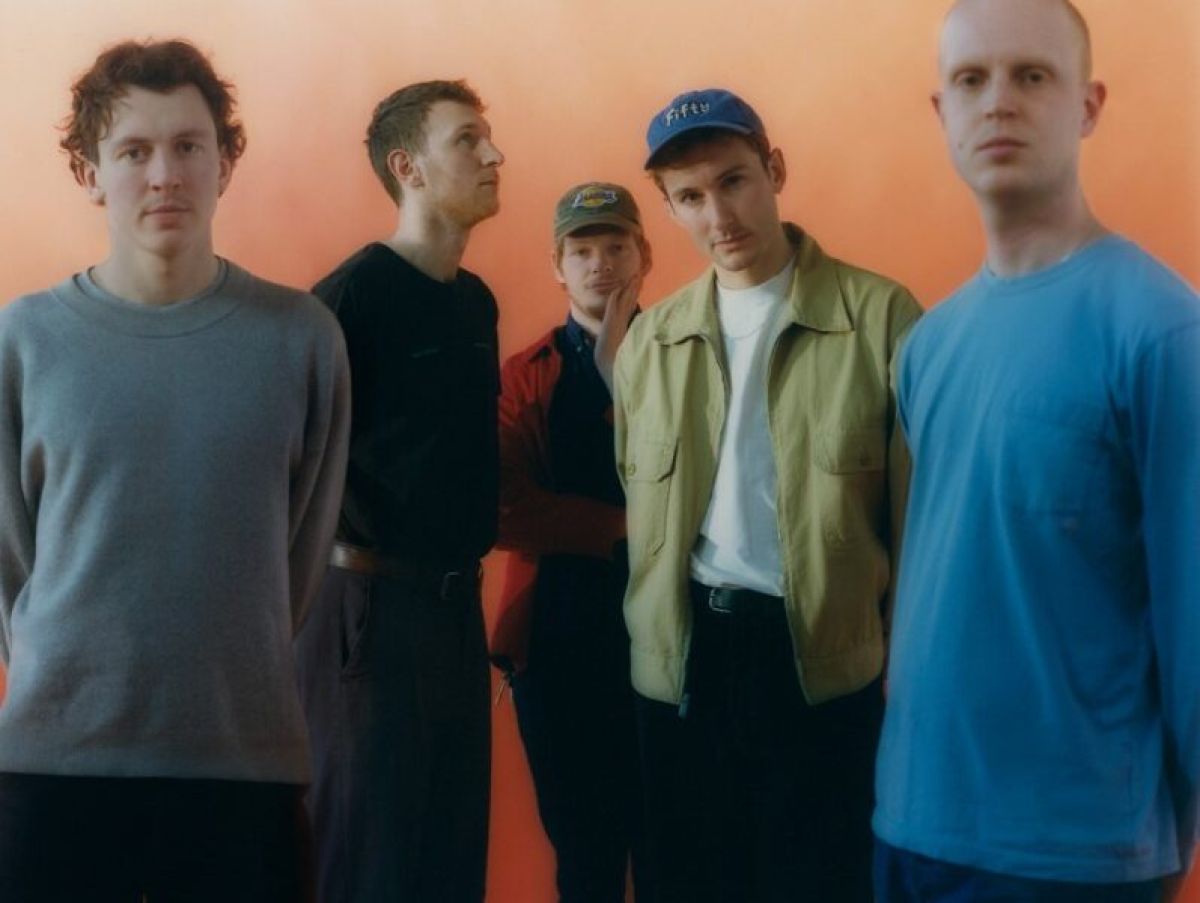
There are few bands who manage to pack as much of a tight, musical punch into every bite of sound as Squid do. Aggressive yet insular, janky yet scrupulously organised, the group in many ways encapsulate the often difficult-to-pin-down modern ethos of post-punk.
Squid’s sophomore LP is a record with the band’s sharpest edges somewhat rounded. O’Monolith seemingly retains their bite, with a newer, more orchestral sheen; an album that wants to expand beyond their previous release. “I think we’re definitely moving in different directions. I think we developed as musicians. And as a band, I think we’ve got better,” guitarist Anton Pearson remarked.
In a group as eclectic as Squid, it’s easy to imagine conformity to most musical norms being frowned upon. The variety of influences is obviously present, but not easily pinned down. “It’s very rare that we’re all listening to the same music at the same time,” he explained. “We don’t share the same tastes in everything, and that’s good. When we write music together, definitely in the early stages, we don’t really talk about it. We just kind of get in a room [until it] sounds exciting.”
Rather than emulating specific styles or genres, theirs is a more organic approach to ‘taking influence’. “We do talk about other people’s pieces of music all the time. But it’s more like very specific moments.” Be those moments short, powerful transitions or subtle textures in a mix, Squid are a band extremely aware of finer details. In Anton’s own words, to take directly from any one place would be to make the group “stagnate”.
In the name of avoiding dreaded stagnation, the new LP saw the band also take on a dramatic shift in creative environments. Recorded at Peter Gabriel’s ‘Real World’ studio in the Wiltshire countryside, there is a clear urban/rural divide between the two records they have released. “We did a lot of the writing really close by to where we did the recording. So it was nice for us to have that kind of organicism,” Anton explained; “It felt very grounded in place.”
“With Bright Green Field we wrote it over quite a long period of time and different things started at different places… [with] O’Monolith, we did most of the writing in Wiltshire… And then we just moved to the other side of the river to do the record. So we definitely felt much more connected to the place than we did when we did Bright Green Field. Not that that’s the best way to make records. It was just a different way to make records.”
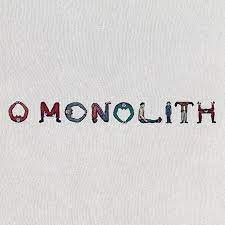
Flush with new, electronic sounds and interstellar string-like arrangements, Pearson described how these new sounds made their way onto the record: “We’re not a sort of big band where we can just buy whatever we want, anytime… Louie got a Moog Mother and we’ve been MIDI sequencing it with the Digitakt drum machine, so that’s formed quite a cool backdrop to the tracks…”
Squid seem a band very in contact with the instruments they use. Each choice is more conscious and precise than the last. He went on: “…getting that relationship right between drum machine and live drums is quite exciting. I think they really complement each other rather than one trying to be the other.”
While the recording process changed somewhat for this new release, Squid did not deviate too much from their blueprint for success. For the new LP, the band remained with Dan Carey, a big figure in modern post-punk. On this creative partnership, Anton remarked: “[Dan Carey is] very hands-on, he’s very enthusiastic. He’s very much about the kind of tension and vibe and energy and momentum… He’s very happy working with every instrument that we bring in or throw at him,” a partnership indicative of trying to create a ‘feeling’, rather than a concrete philosophy and sound.
All of these new, expansive elements on the LP come together to create a picture of a uniform, artistic group. When the time came to discuss the elusive title of this new release, Anton explained: “I think on the first time [Bright Green Field], we got really obsessed with every element making a lot of sense, musically, and within the artwork, but that’s not always how we work.”
“When we write music together, we’re not really too worried about everything making perfect sense… It’s just not one clear story.”
This raw creativity would perhaps not be the same if Squid weren’t signed to indie-electro pioneers, Warp. Alongside brilliantly digitised and programmable acts such as Boards of Canada and Aphex Twin, Squid seem strangely analogue, but not out of place. “I mean, we all listen to a lot of Warp acts personally,” Anton was keen to highlight. “When you’re signing to a label, it’s about what sort of home do you want for your music, I suppose. And yeah, we wanted it to be in a place where experimental approaches would be nurtured and not thought of as that little bit on the side we’re doing, while we’re writing three-minute radio tunes.”
To that extent, examining under the bonnet of a group like Squid is really to examine five moving parts – five artistically driven, interested young men. As such, I was keen to get to know what Anton was reading at the moment, and this potentially exposed the holes in my logic: “Doesn’t mean I’m intelligent, but I’m reading!”
“I’m reading Regenesis by George Monbiot. George Monbiot is a climate activist and he does a lot of climate reporting for The Guardian and his book is about global food systems and the relationship with soil and yeah… one of those kind of things that you read and you feel totally depressed about the world and very much aware of how much things need to change and how it could change but quite frustrated that they are not…” Engaging, at the very least. Anton’s reading habits may not have too much to say for the band as a whole, but they may well explain the group’s desire to return to the land for this LP.
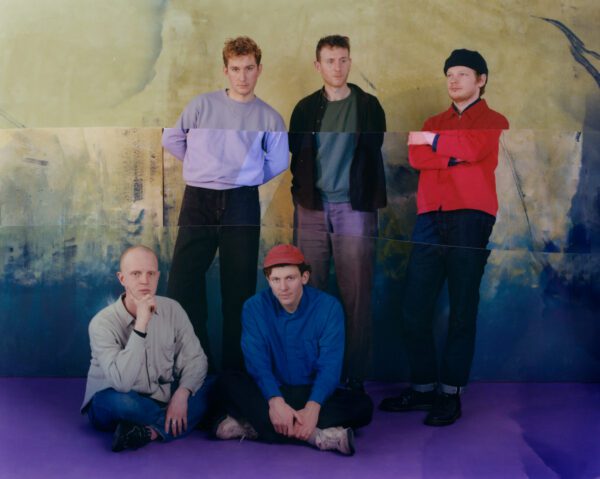
Squid are quintessentially a live band. However, O’Monolith is expansive in ways that introduce interesting issues for how the band translate this massive music to the stage. On speaking to Anton about this, he elaborated: “Now we’re getting ready to properly tour the album, our relationship and understanding of all of those pieces of music is shifting again. And we’re working on different ways of playing live that feel like they work better in a live context than maybe on the record, but not just trying to replicate everything.”
The live experience is integral for the group, which Anton made very clear. Squid – like most bands who enjoy touring – have a fondness for Manchester and especially its student scene. “We’ve had loads of great shows in Manchester. We’ve done a few shows at Yes. They’ve always been really good. Yeah, we’ve loved coming to Manchester… we all started when we were at uni.” The story of most post-punk bands seems to be one of staying on the floors of halls up and down the country, with the University of Manchester no exception.
However, I did feel obliged to probe him on his opinions on what the ‘ideal’ audience consists of. “I like looking out into the audience and seeing a real mix of different people from different ages and backgrounds. It’s a really nice feeling [when] different elements of your music are appealing to different people in different ways… I mean, having said that, sometimes when there’s loads of students, all going absolutely nuts for the show, that’s fun in a different way.”
Bear that in mind next time you happen by a Squid show. Everyone is welcome – welcome to react as they please. You can find tickets to see Squid on tour here.

